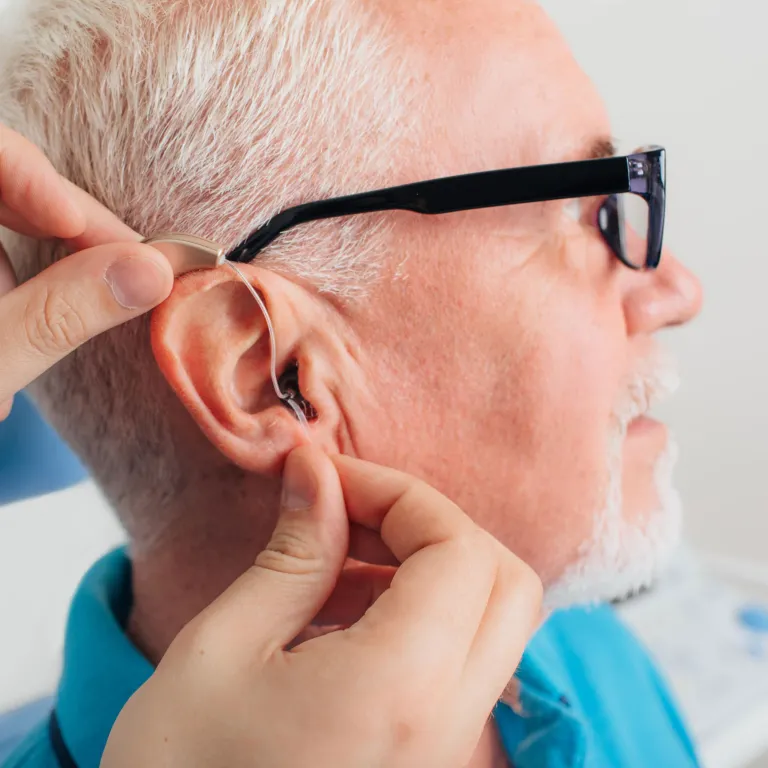
Last month, the Food and Drug Administration began allowing the sale of hearing aids over the counter (OTC). Previously, those with hearing loss needed a prescription from a hearing health professional in order to buy them. While the increased availability of devices that improve quality of life for millions of Americans—many of whom live in senior living communities like Kingsway—is a definite win, there’s no doubt that, as with any new product or service, people will have questions. Here are some of the answers to a few commonly asked questions about OTC hearing aids:
How are OTC hearing aids different than prescription hearing aids?
Like prescription hearing aids, OTC hearing aids amplify sounds. The difference is that, obviously, OTC hearing aids aren’t prescribed by a doctor, and therefore must be fit by the wearer his or herself. Wearers may also be able to adjust OTC hearing aids in ways those with prescription devices cannot. OTC hearing aids, in many cases, utilize Bluetooth technology and are adjusted through an app, which the user, or their helper, downloads to their smart phone or tablet.
Who should consider OTC hearing aids?
OTC hearing aids are specifically for adults over 18 with mild to moderate hearing loss—not for children or those with significant difficulty hearing. Not sure if that’s you? If speech or sounds seem muffled; you have trouble hearing in a group, noisy area, on the phone or when you can’t see who’s talking; you have to ask others to speak more clearly; or you turn the volume up on the TV higher than others, there’s a good chance it is. You can consult an audiologist if you’re unsure.
How much do they cost?
As with any consumer product, OTC hearing aids come at many different price points. Walmart offers them for as low as $199 and they can be as expensive as $6,000. On average, they cost less than $1,000, and the wearer doesn’t have copays or other costs associated with seeing a doctor. Health insurance typically doesn’t cover the cost of hearing aids so choosing OTC hearing aids may result in up to $3,000 in savings.
What hearing aid should you get?
If you’re unsure which OTC hearing aid to get, consider choosing one based on the support offered by the company selling them, such as an online chat option or customer service phone number. Everyone is new to the self-fitting process, so support services will be instrumental in the coming months and years. For a comprehensive look at OTC hearing aids and specific recommendations, read this New York Times article.